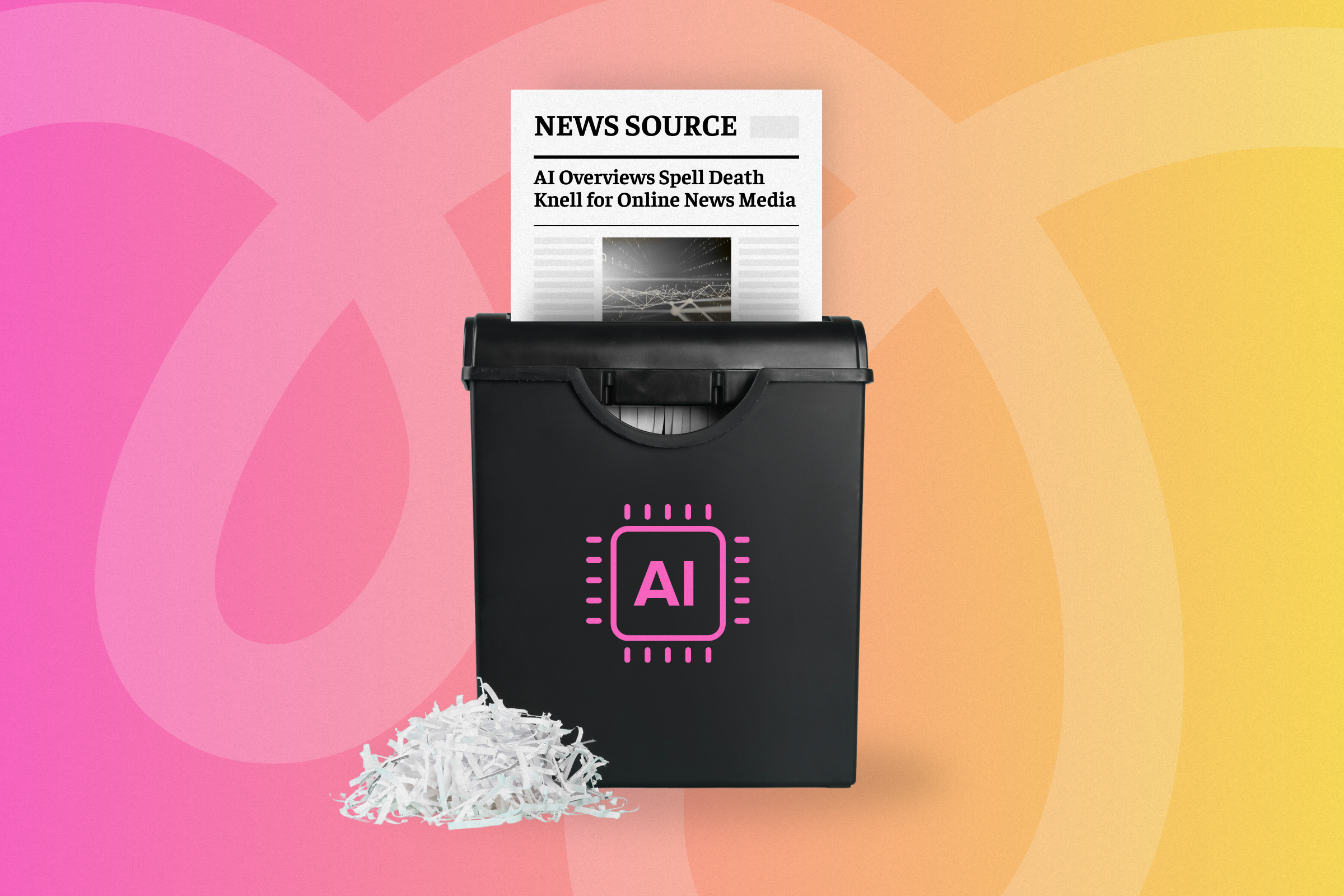When the News is Disrupted, Wikipedia Feels It Too
The AI revolution is here and media organizations are being forced to adapt. Wikipedia will have to grapple with those changes, and it could transform how we get our information forever.
For decades, news media has faced one wave of digital disruption after another. First they gave away their content online for free, then social media captured their ad revenue, and now AI is siphoning off readers before they even visit. The downstream effects on democracy and on industries that depend on trusted information will be massive, and Wikipedia stands to lose as much as any of them.
To understand why, it helps to look back at how the media adapted—or failed to adapt—to earlier shifts in technology. Web hosts like GeoCities and Blogger made citizen media easy to create in the Web's early years, and more professional news sites like The Verge and BuzzFeed took off in the late 2000s/early 2010s thanks to their accessible and free content. The New York Times launched its website in early 1996, which helped it carve out a place in the digital world and focus on building its subscriber base. NYT's digital revenue topped its print revenue for the first time in 2020. While local outlets fared poorly, it seemed as though national media outlets would find a way to survive. Then came the death of Twitter and the rise of ChatGPT.
News websites have long relied heavily on click-through traffic for digital ad revenue and increasing subscribers. In the 2010s especially, this strategy leaned on social media and viral posts to drive clicks, coupled with SEO-driven headlines to dominate Google searches. But by the end of the decade, social media companies, including Twitter and Meta, decided the best thing for their bottom lines was to keep people engaged on their sites instead of passing them off to news companies.
Tastes like chicken. Abake, Public domain, via Wikimedia Commons
On the search engine side of things, Google integrated Gemini into its results in May 2024, giving people answers without them ever needing to click on a link. Microsoft did something similar, integrating Copilot with Bing. That sounds great, in theory. These AI chatbots would gobble up news reporting, spit out the answers to the world's queries near instantly, and users would get what they needed vastly faster than they could by reading articles.
There's just one small problem: if news websites providing the AI with information for its answers rely on clicks to generate revenue and the AI prevents those clicks, the news websites can't keep paying their journalists, the AI stops getting new information, and the entire house of cards collapses under the weight of tech giants' self-made ouroboros.
Dubbed "Google Zero" by The Verge's editor-in-chief Nilay Patel, the moment AI stops sending traffic to news websites is a death knell for online news publishers. It's a moment they are actively preparing for rather than simply considering an unlikely doomsday scenario.
Last month, The Verge and Wired announced new strategies to turn their product into something closer to a social media feed than a traditional news website. Users of The Verge can now opt to follow the reporters and topics they care most about and self-curate a news feed. They'll also be able to sign up for newsletters, paid and free, to get The Verge directly in their inbox, bypassing Google AI Overviews altogether. Wired readers can do something similar. If these publications, generally on the cutting edge of technology, are going this way, it's a sure bet that more will follow.
The direct-to-inbox/hybrid social media feed model creates a host of issues: how will their newsletters stand out in a sea of ad-spam disguised as news? How can readers actually get to the good stuff? Wikipedia editor and technology critic Molly White has one solution: an RSS feed, a simple and durable technology the Internet gave up sometime around the closure of Google Reader in 2013. Time really is a flat circle.
Examined through the lens of Wikipedia's careful sourcing requirements, the questions become even more challenging to answer.
Will journalists be incentivized to report on the most popular topics of the day to generate followers/subscribers? Will reporters write about these topics in a way that reaffirms reader perceptions to keep those followers, thereby creating an independence issue or conflict of interest? Will those not subscribed to these newsletters still have access to the sources? Will these newsletters—generally considered solid sources when written by reputable outlets—still be considered "published" material, or will they become something more akin to personal correspondence, making them less feasible for use as a source on Wikipedia?
For communications teams, the shift underscores the importance of securing coverage in outlets that satisfy Wikipedia’s sourcing guidelines. As publishers experiment with new formats, staying alert to what Wikipedia editors accept as reliable will be crucial to client success on the platform.
Ultimately, it is the volunteer editors who will have to grapple with these questions. The answers they come to could reshape Wikipedia forever, and with it the way information is created and consumed across the Internet.


